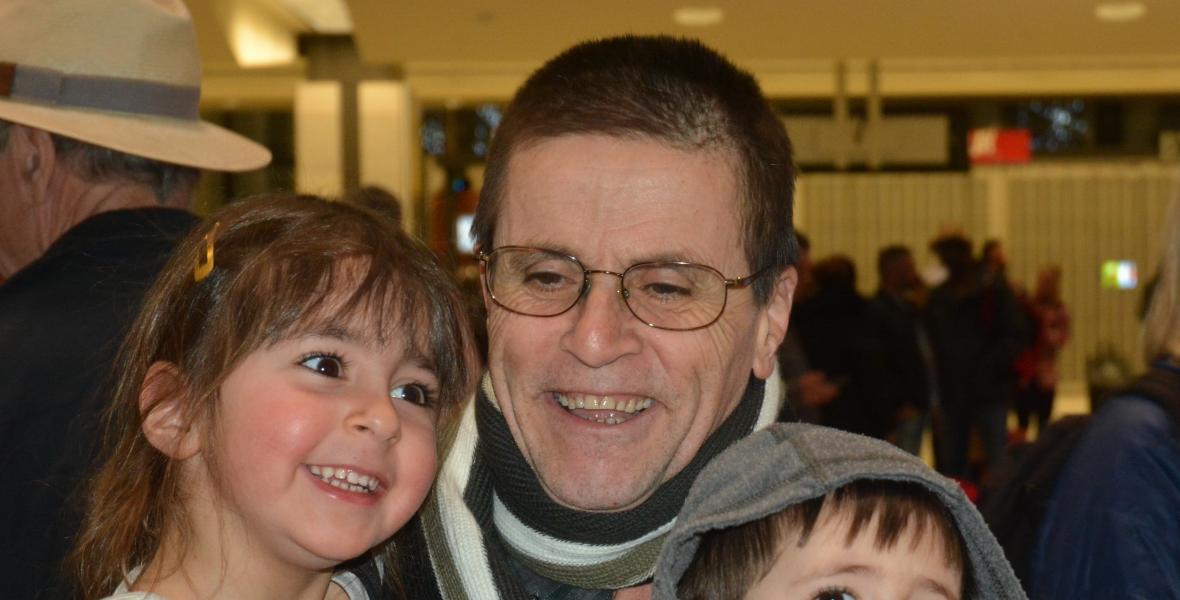Supporters of Hassan Diab are calling on the Canadian government to block any extradition requests from France, one week after the former professor was convicted a second time for his alleged involvement in the 1980 Paris synagogue bombing.
Diab’s legal tribulations began in 2008 when France first requested he be extradited from Canada to stand trial on terrorism charges. The bomb attack at the Rue Copernic synagogue killed four people and injured more than 40 others.
In 2014, Diab was transferred into the custody of French law enforcement where he spent 38 months behind bars awaiting his day in court — much of that time spent in solitary confinement. On top of the human rights violations Diab suffered behind bars, he also missed more than three years with his young children, including the birth of his son.
The terrorism charges were dropped in 2018 due to what judges called “a lack of evidence.”
But Diab’s second chance at freedom would not last.
Now, experts and advocates alike are calling on Canada to block an extradition request from France that would see Diab again incarcerated in a French prison.
During his first extradition, the judge characterized the persecution of Diab as “a weak case” and that “the prospects of conviction in the context of a fair trial, seem unlikely.” Despite the ambiguity, the judge had no legal recourse other than approving the extradition.
Allies of Diab argue that the former professor was not even in Paris during the synagogue bombing. Rather, Diab presented evidence that he was in Beirut at the time, with documents and testimony from students at the Lebanese University confirming his presence.
Concerns about ‘manifestly unfair trial’
In an April 21 statement to the media, Hasan Diab Support Committee member Roger Clark laid out key factors that led to what he called a “manifestly unfair trial.”
Clark noted that while anonymous and unsourced secret intelligence was reintroduced, no new evidence was presented at the trial.
Also concerning to Clark was the admittance of handwriting reports by “experts” hired by the prosecution that were previously rejected and withdrawn due to unreliability. Some of those reports also included “new” conclusions.
READ MORE: Hassan Diab, trial in absentia
Clark added that no official transcript or recording of the proceedings exist, making it virtually impossible for the public to determine whether Diab received a fair trial.
Because Diab was tried “in absentia” — he didn’t attend the trial in France out of fear of not being allowed to return to Canada — there is no possibility to appeal his conviction.
Clark is also concerned about the speed with which a guilty verdict was found — less than 24 hours.
Diab faces life sentence
When Diab was freed and returned to Canada in June 2018, Prime Minister Justin Trudeau said that “what happened to Hassan Diab never should have happened,” while promising he would “make sure this never happens again.”
Just five years later, Canada’s Extradition Act will be put to the test again.
“The time is now for Canada to make the Prime Minister’s commitment a reality,” Clark concluded. “Canada must make it absolutely clear that no second request for the extradition of Dr. Diab will be accepted.”
Meanwhile, the calls from Diab’s supporters have reached the New Democrats. NDP justice critic Randall Garrison and foreign affairs critic Heather McPherson joined the push to block Diab’s extradition, emphasizing that he’s been denied a fair process and had his human rights violated for more than a decade.
Diab is facing a life sentence in French prison.
While the NDP expressed its condemnation of the attack and offered condolences to the victims and families seeking justice nearly 45 years later, Garrison and McPherson added that “this entire trial has been a sham.”
“Diab has lived through a nightmare for the last decade and unjustly spent three years in a French prison under tortuous conditions,” the pair said in a Friday statement.
Garrison added that “everyone deserves the right to a fair trial,” a right he believes was denied to Diab.
“The horrible conditions Dr. Diab suffered over flimsy and discredited evidence violated his rights and poisoned the process,” he said.
Last month, Amnesty International urged the French public prosecutor for anti-terrorism to drop the “groundless” charges against Diab, while calling the case against him “baseless and flawed.”
The calls to end the persecution of Diab come in tandem with a push to hold individuals responsible for the antisemitic attack to be brought to justice.
“Justice does not, however, come by pursuing a man against whom both the Canadian and French justice systems have already found there to be a lack of credible evidence,” a March press release from Amnesty International reads.
After reviewing judicial decisions, evidence, documents, legal submissions and court rulings, Amnesty has concluded the charges against Diab should be withdrawn.
Now, it’s up to the Canadian government to prevent the relentless persecution of Diab from continuing. It’s a promise the professor hopes Trudeau will keep.




